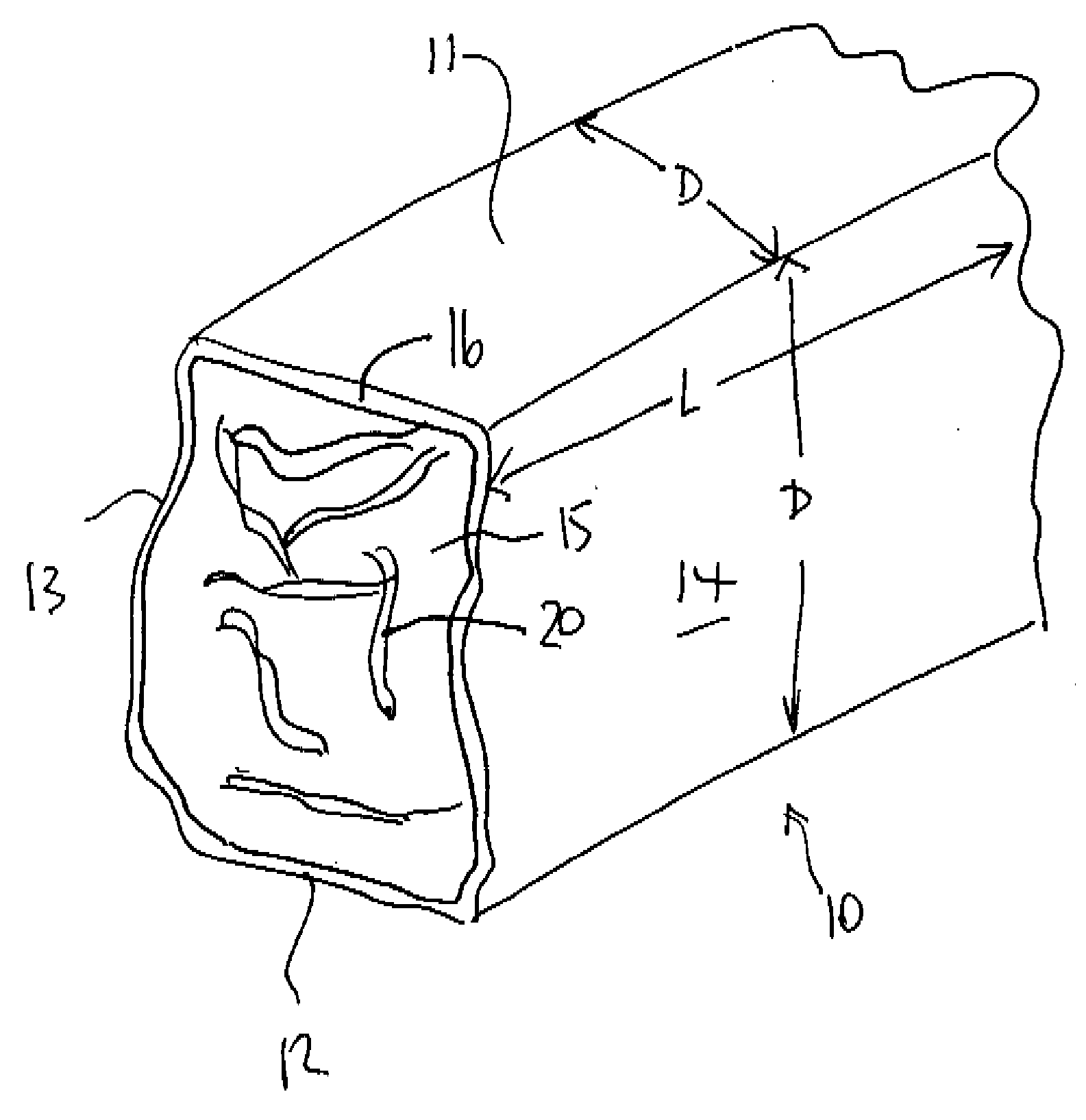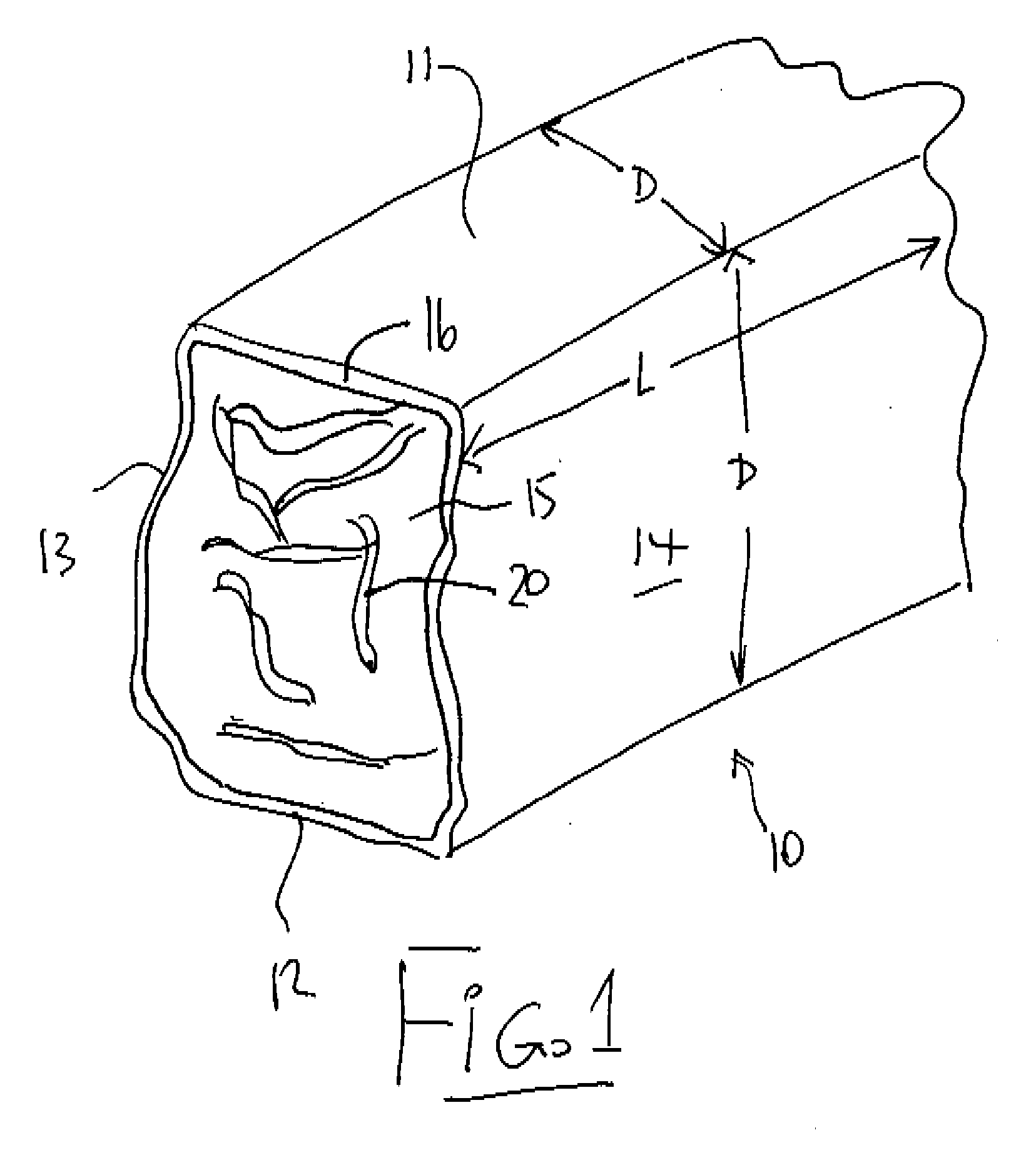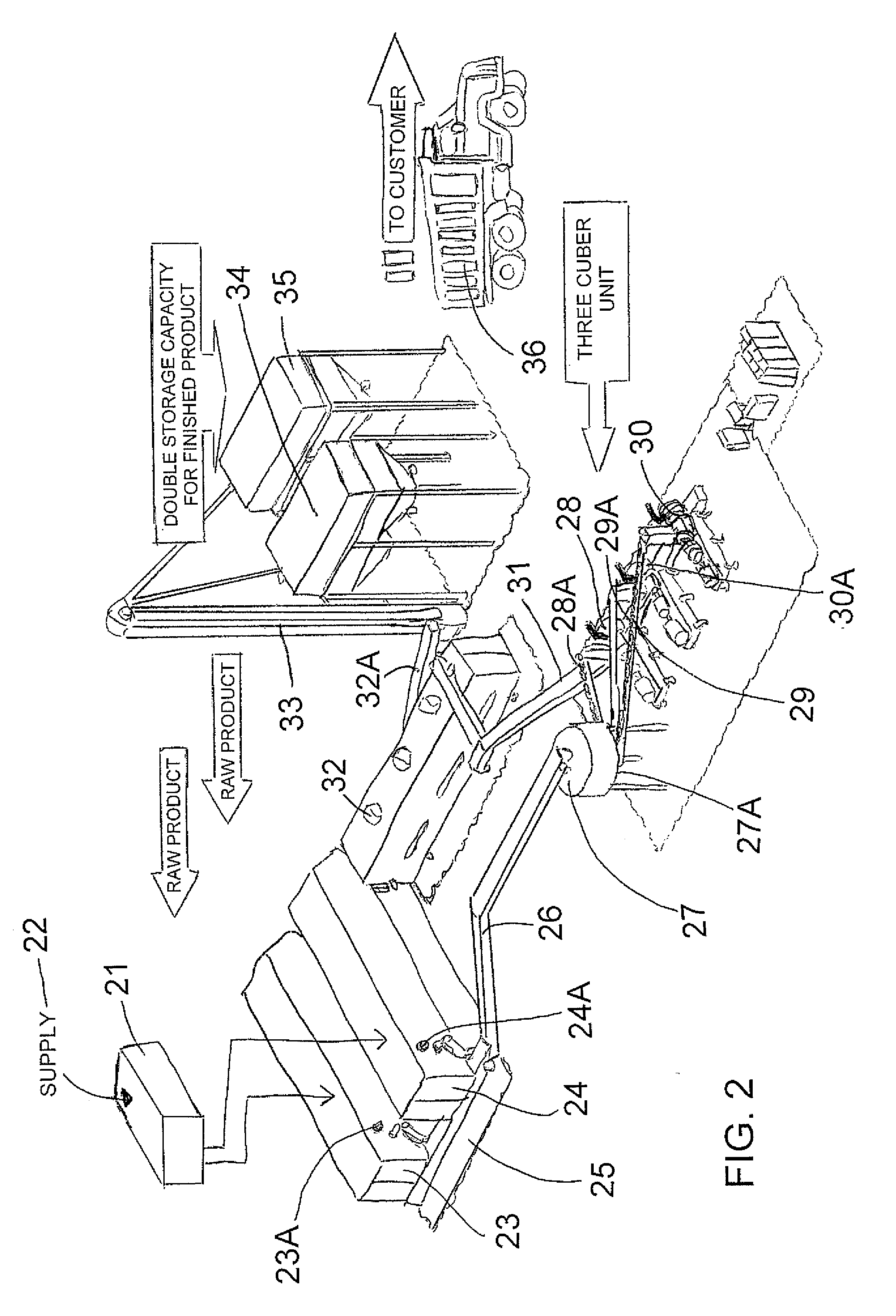Plant biomass solid fuel
a solid fuel and plant biomass technology, applied in the direction of biofuels, solid fuels, shaping presses, etc., can solve the problems of increasing cost, less than entirely suitable as fuel, and relatively expensive briquettes, and achieve high quality solid fuel, and enhanced cube durability and energy content
- Summary
- Abstract
- Description
- Claims
- Application Information
AI Technical Summary
Benefits of technology
Problems solved by technology
Method used
Image
Examples
Embodiment Construction
[0091]In FIG. 1 is shown one piece formed by the cubing system described herein after. This single piece is indicated at 10 and forms one of a multitude of such pieces which are extruded and then broken to length as described herein after.
[0092]Each piece 10 is extruded in square cross section to form top and bottom surfaces 11 and 12 and side surfaces 13 and 14. These surfaces are flat and are formed from the inside surface of the die as described herein after.
[0093]The piece so formed is formed from the plant biomass material previously described where the high temperatures generated in the compression process of the Cuber acts to cause the cellulose in the material to act as a binder within a central area 15 of the piece. Lignin within the material is driven to the exterior and is polymerized by the high temperature action to form a hard outer casing 16.
[0094]The high compression of the cubing system described herein after provides a densification of the materials to provide a de...
PUM
| Property | Measurement | Unit |
|---|---|---|
| length | aaaaa | aaaaa |
| width | aaaaa | aaaaa |
| length | aaaaa | aaaaa |
Abstract
Description
Claims
Application Information
 Login to View More
Login to View More - R&D
- Intellectual Property
- Life Sciences
- Materials
- Tech Scout
- Unparalleled Data Quality
- Higher Quality Content
- 60% Fewer Hallucinations
Browse by: Latest US Patents, China's latest patents, Technical Efficacy Thesaurus, Application Domain, Technology Topic, Popular Technical Reports.
© 2025 PatSnap. All rights reserved.Legal|Privacy policy|Modern Slavery Act Transparency Statement|Sitemap|About US| Contact US: help@patsnap.com



